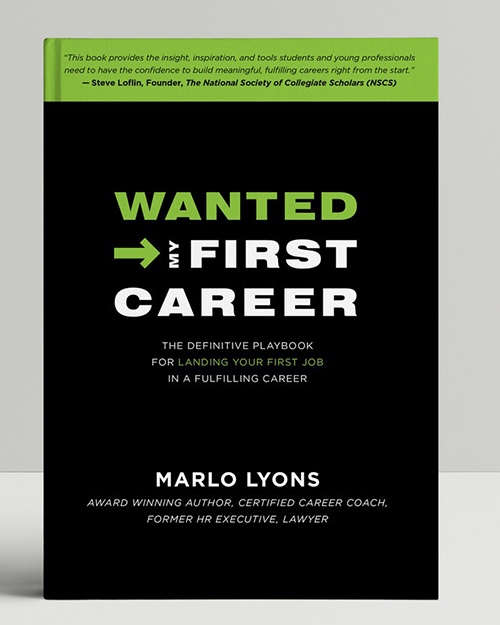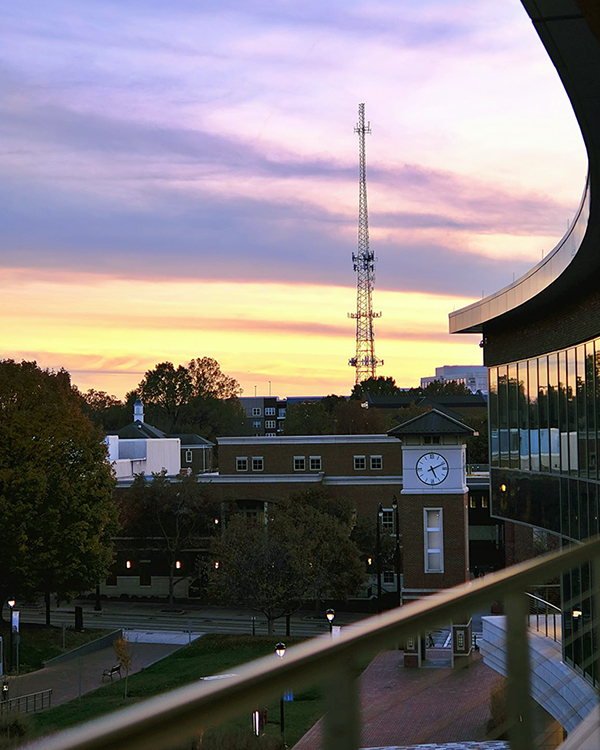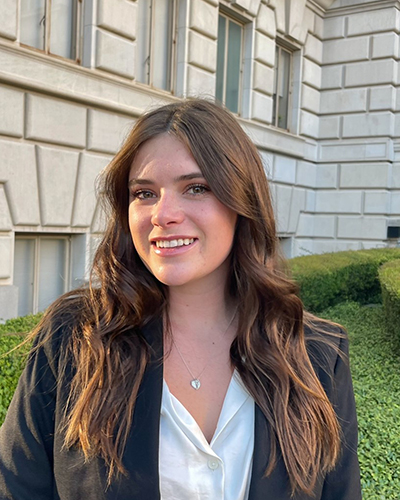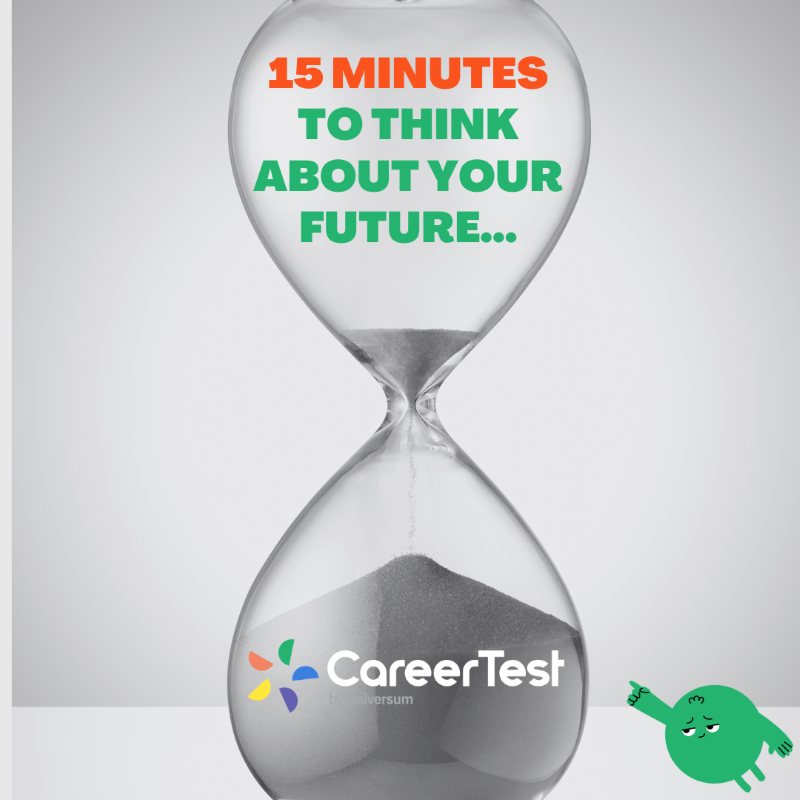This is exactly why career tests are so valuable—they provide data-driven insights to help you navigate your options with confidence. Instead of relying on guesswork, you can take a personalized, research-backed assessment that reveals your strengths, interests, and best-fit career paths. And the best part? As an NSCS member, you get exclusive free access to the Universum Career Test 2025!
Why Career Tests Matter
A career test isn’t just a fun personality quiz—it’s a powerful tool that helps you make informed decisions about your future. Here’s how:
 Identify Your Strengths: Learn what makes you unique and how your skills translate into different career paths.
Identify Your Strengths: Learn what makes you unique and how your skills translate into different career paths. Explore Your Best-Fit Career Options: The test connects you with industries and job roles that align with your interests and work preferences.
Explore Your Best-Fit Career Options: The test connects you with industries and job roles that align with your interests and work preferences. Gain Insider Insights: See which employers are hiring students like you and what they look for in candidates.
Gain Insider Insights: See which employers are hiring students like you and what they look for in candidates. Make Confident Career Moves: Whether you’re picking a major, applying for internships, or preparing for graduation, career insights help you take strategic steps toward success.
Make Confident Career Moves: Whether you’re picking a major, applying for internships, or preparing for graduation, career insights help you take strategic steps toward success.
An Exclusive Perk for NSCS Members
As a dedicated NSCS member, you don’t have to figure it all out on your own. Through our partnership with Universum, you have free access to their career-defining assessment—a tool used by students worldwide to refine their career paths.
This exclusive opportunity is only available until June 9th, so don’t miss your chance to get ahead and set yourself up for success.
How to Take the Test
Taking the test is quick and easy:
1⃣ Click the link below.
2⃣ Answer a few questions about your interests, skills, and career goals.
3⃣ Receive a personalized career profile outlining your best-fit industries, roles, and employers.
 Take the Universum Career Test Now
Take the Universum Career Test Now
Your future career starts with clarity. Take the test today and start exploring the opportunities that match your unique strengths! Stay tuned for more career resources and exclusive NSCS member perks to help you along the way.
]]>Why Become a Mentor?
Mentorship isn’t just about helping others—it’s also about growing as a leader. As a mentor, you will:
- Gain valuable leadership and communication experience.
- Build your resume by showcasing your commitment to service and community.
- Create meaningful relationships with fellow NSCS members.
- Leave a lasting legacy by helping others succeed.

What to Expect from the NSCS Mentor Program:
NSCS has partnered with Ambition In Motion to provide a structured, impactful mentorship program. The program is designed to be low time-commitment and high reward, so you can mentor effectively while managing your busy schedule.
- Time Commitment: About 12 hours total, February to May.
- Your Role as a Mentor:
- Engage in three 30-minute conversations with your mentee (via phone, video, or in-person).
- Offer guidance on academics, career planning, and personal development.
- Attend four Ambition In Motion workshops to enhance your mentoring skills.
Why Your Role Matters:
As an NSCS mentor, you’ll help shape the future of our community by empowering other members to achieve their full potential. Your advice and support could be the key to unlocking a mentee’s success.
How to Sign Up:
Becoming a mentor is simple! Complete your application by February 25, 2025, and NSCS will match you with a mentee shortly after.
- There’s no cost to participate.
- All training and resources will be provided through the program.
Ready to take on this rewarding role? Click here to sign up to become a mentor today!
Take the next step in your NSCS journey by becoming a mentor this spring. This is your chance to lead, inspire, and make a difference in the lives of fellow NSCS members. Join the NSCS Mentor Program today and create an impact that lasts far beyond this semester.
Here are five tips inspired by Marlo’s insights to help you make LinkedIn your secret weapon.

1. Make Your LinkedIn Keywords Work Hard for You
Recruiters search for candidates using keywords pulled from job descriptions. Marlo stresses the importance of tailoring your profile to match these terms. Scan job postings in your field and strategically incorporate keywords into your headline, skills, and experience sections to boost your visibility.
2. Highlight Relevant Skills Strategically
Your skills section is more than a list—it’s a way to showcase what sets you apart. Marlo advises pinning the three most relevant skills to the top of your LinkedIn profile. This ensures that recruiters immediately see your top strengths. Don’t forget to ask professors, colleagues, or mentors to endorse these skills for added credibility.
3. Tell a Story with Your Background Photo
Most users stick with LinkedIn’s default background, but Marlo sees this as a missed opportunity. Choose a simple, professional image that reflects your career aspirations. For example, a sleek tech-inspired design could work for aspiring engineers, while a creative abstract might suit marketers or designers.
4. Get Specific with Recommendations
When asking for LinkedIn recommendations, Marlo advises providing your recommenders with specific achievements or skills to highlight. For example:
“Could you mention my leadership skills and the impact I had on [specific project]?”
This ensures that the recommendations align with the story your profile is telling and helps recruiters see your potential.
5. Maximize Your Visibility with LinkedIn Settings
Many job seekers overlook the importance of profile settings. Marlo recommends making sure your profile is public so recruiters can easily find you. Additionally, turn on the “open to work” feature to signal your availability without alerting current employers.
A Career Playbook for the Modern Era
These LinkedIn tips are just one example of the practical guidance Marlo provides in Wanted → My First Career. From creating compelling resumes to nailing your first 90 days on the job, the book covers everything you need to know to build a career that aligns with your passions and goals.
Some of the chapters you can look forward to include:
- “Be Intentional” – How to approach every step of your career with purpose.
- “Assessing What’s Important to You” – Discovering your values and translating them into a fulfilling career.
- “Recruiters Are the Gateway” – Understanding how to connect with and leverage recruiters.
- “Tell a Great Story in Your Cover Letter” – Making your application stand out.

About Marlo Lyons
Marlo Lyons is an award-winning author, career strategist, and executive coach with a passion for helping individuals navigate the complexities of the job market. Her previous book, Wanted → A New Career, won the Eric Hoffer Award for Best Self-Help Book of 2022 and was praised for its empowering and practical advice.
Marlo is a globally certified career coach, HR professional, and licensed lawyer. She regularly contributes to publications like Harvard Business Review, CNN, and Newsweek and has shared her expertise on top podcasts like GrowCFO and The Power In The Pause. You can reach Marlo at www.marlolyonscoaching.com.
Get your copy of Wanted → My First Career today, available in Kindle, paperback, and audiobook formats. Take the first step toward building a career that reflects who you are!
]]>Gratitude isn’t just a nice feeling—it’s a practice that supports your mental health, enhances your focus, and boosts your resilience. Here’s how a Gratitude Jar can make a real difference as you navigate the final stretch of the semester.

How Gratitude Helps You End the Semester Strong
- Boosts Your Motivation
When you take a moment to acknowledge small victories—like completing a challenging assignment or having a meaningful conversation—it reinforces your sense of progress. This helps you stay motivated to tackle the next challenge. - Reduces Stress
Gratitude shifts your mindset, encouraging you to focus on what’s going well rather than what’s overwhelming you. This mental reset can lower stress levels and improve your ability to concentrate. - Fosters Resilience
Reflecting on positive moments, even during tough times, reminds you of your capacity to handle challenges. It’s a practice that builds emotional strength and keeps you moving forward.
How to Create Your Gratitude Jar
- Choose Your Jar
Use any container—a mason jar, a decorated box, or even a coffee mug. If you like, personalize it with stickers, quotes, or designs that inspire you. - Start Writing Gratitude Notes
Cut up small pieces of paper or grab sticky notes. Each day, write down one thing you’re grateful for. It could be academic progress, a kind gesture, or even a small joy like your favorite coffee.
Examples:
- “Grateful for my professor’s extra office hours before the big exam.”
- “Thankful for my roommate helping me proofread my paper.”
- “Appreciate how the sunshine made my walk to class better today.”
- Use It as a Study Break
When finals stress starts to build, pause to add something to your jar. This practice serves as a mindfulness exercise, giving you a chance to refocus and find balance. - Make It a Shared Practice
Invite your friends or study group to create their own Gratitude Jars, or even share gratitude notes with each other. This can build a sense of connection and mutual support. - Reflect and Recharge
At the end of the semester, take time to read through your Gratitude Jar. Reliving these moments can provide a sense of accomplishment and remind you of all the positives that carried you through.
Why It Works
A Gratitude Jar isn’t just a feel-good activity—it’s a powerful tool for self-care. By making gratitude part of your daily routine, you’re training your brain to focus on the positives, which can improve your mental health, increase your energy, and help you stay motivated through stressful periods.
As finals wrap up and the semester closes, you’ll have a tangible reminder of the good that happened, even during busy and challenging times. This simple practice helps you finish strong—not just academically, but emotionally and mentally as well.
Try starting your Gratitude Jar today and see how it transforms your mindset as you power through the final weeks of the semester.
]]>1. Treat It Like a Job
When listing volunteer work, structure it as you would any job or internship. Include the organization name, your role, location, and dates of service. For example:
Volunteer Coordinator, Habitat for Humanity
Washington, DC | June 2022 – August 2023
2. Focus on Transferable Skills
Employers want to see how your volunteer work prepared you for their role. Did you develop leadership skills by coordinating events? Strengthen your communication abilities by working with diverse groups? Use bullet points to clearly outline your contributions and achievements.
For instance:
- Managed a team of 10 volunteers to complete housing construction projects on schedule.
- Facilitated workshops on homeownership for underserved families, improving community awareness.
3. Quantify Your Impact
Numbers catch attention. Wherever possible, include metrics to showcase the scale or results of your efforts.
Instead of saying:
“Organized fundraising events.”
Say:
“Organized three fundraising events that raised $25,000 to support local education programs.”
4. Highlight Leadership and Teamwork
If you held a leadership position or played a key role in group activities, emphasize this. Employers value individuals who can lead and collaborate.
For example:
- Led a weekly mentorship program for 15 high school students, increasing graduation rates by 20%.
- Collaborated with a team of five to design and implement a sustainable food drive system for the campus community.
5. Tailor Your Experience to the Job Description
Not all volunteer experiences need to be listed. Choose the ones most relevant to the position you’re applying for. If the job emphasizes customer service, highlight volunteer roles where you engaged with the public. If the role values project management, showcase your organizational contributions.

6. Include Volunteer Experience in Multiple Sections
Volunteer experience doesn’t need to be confined to a single section of your resume. Depending on its relevance, you can:
- List it under “Work Experience.”
- Create a separate “Volunteer Experience” section.
- Include it in “Skills” or “Leadership Activities.”
7. Use Action Words
Make your resume dynamic by starting each bullet point with strong action verbs such as “organized,” “led,” “facilitated,” or “developed.” This conveys initiative and impact.
8. Showcase Long-Term Commitments
Consistent, long-term volunteer work demonstrates dedication and time management. Employers may view this as an indicator of reliability and passion.
9. Mention Soft Skills
Volunteering often develops soft skills like empathy, adaptability, and problem-solving. If these align with the job, be sure to highlight them in your resume or cover letter.
10. Leverage NSCS Opportunities
As an NSCS member, you have access to exclusive service opportunities and leadership roles. These experiences not only build your resume but also set you apart by showing your dedication to academic excellence and community engagement.
A well-crafted resume can turn your volunteer experience into a powerful career asset. By tailoring your contributions to fit the roles you’re applying for, you can show employers that your commitment to service goes hand in hand with professional growth.
]]>Recognizing the Signs of Struggle
It’s crucial to be aware of the signs that someone may be experiencing mental health challenges. According to Active Minds, key indicators include:
- Withdrawal from activities: Avoiding social events, clubs, or responsibilities they once enjoyed.
- Changes in behavior: Noticeable shifts in sleep patterns, appetite, or ability to concentrate.
- Expressions of hopelessness or irritability: Talking negatively about themselves or showing mood swings.
Everyone’s experience is different, so trust your instincts if you feel something is off. (Source: Active Minds)

How to Approach Someone You’re Concerned About
Approaching a friend about your concerns can feel intimidating, but it’s important to be compassionate and non-judgmental. Here are some suggestions from Active Minds:
1. Choose a calm, private moment: Ensure you’re in a comfortable and safe setting.
2. Use gentle language: Express your concern with “I” statements, like, “I care about you and have noticed you seem down. How can I support you?”
3. Listen actively: Give your full attention and focus on what they’re saying, without trying to “fix” their problems. Simple affirmations, like “I’m here for you,” can be powerful.
4. Encourage professional support: Suggest they consider talking to a counselor or mental health professional and offer to help find resources if they’re interested.
5. Stay connected: Check in with them regularly to show you care and are there for them.
Your role is to support and listen, not to provide solutions or therapy. Sometimes, just being present is enough. (Source: Active Minds)
How the Holidays Can Impact Mental Health
The holiday season can be stressful for many students, especially as it coincides with finals and family-related pressures. Some may struggle with the anticipation of returning home to challenging environments, while others may feel isolated if they can’t travel to see loved ones. Academic stress can also be a significant factor.
Being aware of these potential challenges can make you more empathetic and prepared to offer support. Simple actions like inviting a friend to join a holiday celebration or offering to study together can help someone feel less alone during this time.
Taking Care of Yourself
Supporting someone through their mental health struggles can be emotionally exhausting. It’s important to prioritize your own well-being, too. Practice self-care, connect with friends, or seek professional help if you need it. As Active Minds emphasizes, taking care of your own mental health enables you to be a better source of support for others.
For additional resources and guidance, visit Active Minds. Through our partnership with Active Minds, NSCS aims to foster a supportive and informed community where mental health is openly discussed and valued.
1. Review Your Academic Calendar
Take a close look at your syllabus and academic calendar to identify key dates, including final exams, project deadlines, and any presentations. Mark these dates on your planner or digital calendar and set reminders to stay aware of what’s coming up. This way, you won’t be caught off guard by deadlines, and you can plan your study schedule accordingly.
2. Prioritize Your Assignments
As the semester winds down, assignments and study sessions can pile up. Make a list of all your upcoming tasks and prioritize them based on due dates and importance. Break larger projects into smaller, manageable steps to avoid feeling overwhelmed. Tackling your most urgent assignments first will help you stay on top of your workload and reduce stress.
3. Create a Study Schedule
With finals approaching, it’s important to create a study schedule that balances your academic responsibilities with holiday plans. Use tools like time-blocking or the Pomodoro Technique to allocate specific hours for focused studying. Remember to account for breaks and give yourself time to recharge. Consistency is key, so try to stick to your schedule as closely as possible.

4. Plan for Thanksgiving Break
Thanksgiving break can be a valuable time to catch up on studying or get ahead with assignments, but it’s also an opportunity to rest and spend quality time with family and friends. Decide in advance how you want to use your break. If you plan to study, set realistic goals for what you want to accomplish and bring home only the materials you’ll need. Balancing productivity with relaxation will help you return to campus refreshed and ready to tackle finals.
5. Organize Your Study Materials
Now is the perfect time to declutter and organize your study space. Gather your notes, textbooks, and any other study materials for each class. Create a system for easy access to what you need, whether it’s using folders, digital organization tools, or color-coded binders. An organized workspace can make a big difference in your productivity and reduce the time you spend searching for materials.
6. Take Care of Your Health
November can be a stressful time, so prioritize self-care to keep your mind and body in top shape. Get enough sleep, eat nourishing meals, and exercise regularly to manage stress. Don’t forget to stay hydrated and take short breaks during study sessions to avoid burnout. Taking care of your well-being will keep you energized and focused as you head into finals.
7. Start Planning Holiday Gifts and Travel
If you’re traveling for the holidays or planning to buy gifts, start making arrangements now. Booking travel early can save you money, and getting a head start on holiday shopping will give you one less thing to worry about as finals approach. Make a budget for gifts and consider thoughtful, budget-friendly options to keep your spending under control.
8. Connect with Professors and Study Groups
Take advantage of office hours to clarify any concepts you’re struggling with and discuss upcoming exams or assignments with your professors. Joining or forming study groups can also be helpful, providing motivation and accountability. Collaborating with peers can give you new insights and make studying more enjoyable.
9. Reflect and Set Goals
Before the holiday season is in full swing, take a moment to reflect on your achievements from the semester so far. Identify areas where you’ve excelled and where you’d like to improve. Use this reflection to set academic and personal goals for the remainder of the semester and for the upcoming year.
November is a crucial month for staying organized and preparing for both finals and the holiday season. By following this checklist, you’ll be better equipped to manage your academic workload and enjoy your holiday plans. With a little preparation, you can wrap up the semester successfully and head into the holidays feeling accomplished and stress-free.
]]>What is Semester at Sea?
Semester at Sea is a unique study abroad program that offers students the opportunity to travel the world while earning academic credits. Students live and learn aboard a ship that takes them to 10 to 12 different countries over the course of a semester. With a curriculum designed to promote cross-cultural understanding and global awareness, Semester at Sea provides an unparalleled educational experience that combines academic coursework with hands-on learning in different international destinations.
The NSCS Semester at Sea Scholarship makes this incredible opportunity possible for students, allowing them to explore new cultures, broaden their academic horizons, and gain valuable life experiences.
Meet Our Scholarship Recipients:

Haley Middleton
The University of Georgia
Award: $10,000
“Since looking into Semester at Sea, I’ve researched countless ways to help fund my study abroad, but the chances of going were slim. Receiving the NSCS Semester at Sea Spring Award provides the financial relief I was searching for, and I couldn’t be more grateful. Being able to attend this study abroad seemed too good to be true, but now with this award, it’s within my reach. This scholarship makes it possible for me to experience diverse cultures, new destinations, and different perspectives that will enrich my education and further my personal and professional growth. I’m excited to learn from the SAS faculty and meet new friends from around the world, making memories that will last a lifetime. I wouldn’t have been able to go on Semester at Sea without this, so thank you to the National Society of Collegiate Scholars for making my dream to study abroad a reality.”
Riley Talmage
University of Twin Cities
Award: $10,000
“I truly cannot express how much this scholarship means to me. The generosity of NSCS will allow my Semester at Sea experience to be less stressful and more adventurous; it is because of them that I will be able to say yes to experiences and opportunities I may not have otherwise. My dream of not just seeing, but actually experiencing the world, will be that much more attainable, and I will be forever grateful to NSCS for believing in both me and my boundless aspirations as I embark on this journey of a lifetime.”


Sara Christ
The University of Texas at Austin
Award: $5,000
“Receiving the NSCS Semester at Sea Spring Scholarship is both a tremendous honor and a meaningful opportunity that will greatly impact my academic and personal journey. This scholarship means more than just financial support; it offers the opportunity to engage in a global classroom where learning reaches far beyond traditional textbooks. It allows me to fully immerse myself in a once-in-a-lifetime opportunity to experience diverse cultures firsthand, engage in global learning, and develop a deeper understanding of the interconnectedness of our world, growing both academically and personally in ways that wouldn’t be possible in a traditional setting. As an advertising student, the ability to see the world through new eyes is invaluable. Semester at Sea will allow me to explore how cultural nuances influence communication and creativity, helping me become a more thoughtful and well-rounded professional. I’m immensely grateful to NSCS for recognizing my potential and helping me take part in a program that will undoubtedly shape my future. This scholarship has empowered me to embrace this journey wholeheartedly, and I’m excited to learn from the world in ways I’ve never imagined.”
Emily Cates
Auburn University
Award: $5,000
“Semester at Sea will be a once-in-a-lifetime opportunity to travel the world, form meaningful connections with people I would never have met otherwise, and I know it will shape me in ways that a traditional classroom experience cannot. Receiving this scholarship means so much to me because it recognizes and eases some of the cost of this program. I am excited about my upcoming journey and grateful to receive an NSCS Scholarship.”


Christy Knabe
The University of Texas at Austin
Award: $5,000
“Receiving the Semester at Sea scholarship from NSCS has been an amazing gift in my life. This scholarship not only helps cover the costs of my final semester of college, but also makes my dream of going on Semester at Sea a reality. This journey will let me explore new cultures and gain experiences that will shape my future. I’m really thankful for this support, and I can’t wait for the adventures and learning that lie ahead. Thank you, NSCS, for making this opportunity possible!”
Olivia Tosto
Global Chapter (College of DuPage)
Award: $5,000
“Receiving the NSCS Semester at Sea Scholarship has truly been a life-changing experience. It has given me the incredible opportunity to pursue my academic ambitions while traveling the world and expanding my horizons. Words cannot express the depth of my gratitude to the National Society of Collegiate Scholars for granting me this once-in-a-lifetime chance. I am deeply honored to have been selected for this scholarship, which represents my commitment to believing in myself and continuously pushing beyond my comfort zone. This experience will shape both my personal growth and future career.”

NSCS is proud to support these exceptional students as they embark on their global academic journey with Semester at Sea. Their stories reflect the transformative power of the NSCS Semester at Sea Scholarship, which enables students to gain firsthand exposure to new cultures and global issues while continuing their academic pursuits. Congratulations to all our scholarship recipients!
]]>The Value of Leadership in College
1. Building Confidence
Taking on leadership roles in college allows students to step outside their comfort zones and build confidence. Whether it’s running a student organization or leading a group project, these experiences teach students how to trust their instincts and navigate challenges independently.
2. Enhancing Problem-Solving Skills
Leaders are problem solvers. In college, this could mean coming up with creative solutions to academic challenges, balancing club responsibilities, or addressing group dynamics. Developing this skill helps students approach complex issues in their future careers with a calm and strategic mindset.
3. Effective Communication
Leadership roles demand clear and effective communication, whether you’re delegating tasks, making presentations, or coordinating events. These experiences refine your ability to convey ideas persuasively and ensure everyone is on the same page—skills that are crucial in both professional and personal relationships.
4. Time Management and Prioritization
Leading a group or managing responsibilities within an organization often requires strong time management. Balancing multiple tasks—whether academic, social, or organizational—helps you develop the ability to prioritize effectively, a skill that becomes invaluable in the fast-paced professional world.
5. Preparing for the Workforce
Employers seek candidates with leadership experience because they know these individuals can take initiative, work well with others, and manage responsibilities efficiently. Being able to demonstrate leadership skills makes you stand out during interviews and can open doors to internships, jobs, and promotions.
How NSCS Helps Foster Leadership Skills

NSCS (National Society of Collegiate Scholars) offers multiple opportunities for members to enhance their leadership skills, ensuring they graduate not only with academic knowledge but also with real-world experience.
1. Leadership Roles within NSCS
As an NSCS member, you have the opportunity to serve in leadership roles within your chapter. From President to VP positions, these roles allow you to spearhead initiatives, manage teams, and engage with both your peers and the wider community. This hands-on experience is invaluable in honing your leadership capabilities.
2. Community Service Initiatives
Leadership isn’t just about holding titles; it’s about making a difference. NSCS encourages members to get involved in community service projects, offering the chance to lead initiatives that positively impact society. These experiences teach valuable lessons in empathy, team management, and responsibility.
3. Access to Mentorship
One of the greatest assets to leadership development is mentorship, and NSCS provides members access to experienced mentors who can offer guidance. Learning from someone who’s been in your shoes helps you avoid pitfalls and adopt successful leadership practices early on.
Leadership skills developed in college don’t just stay on campus—they extend into every aspect of life. From boosting your confidence to preparing you for career success, the ability to lead is an essential tool that sets you apart. Through its leadership roles, community projects, and mentorship, NSCS helps students build and refine these skills, ensuring that when the time comes to take the next step, you’re more than ready.
Leadership is not just a role—it’s a mindset, and there’s no better time to start developing it than during your college years.
]]>1. The Pomodoro Technique: Boost Your Focus
One of the most effective ways to maintain concentration and avoid burnout is by using the Pomodoro Technique. This time management method breaks your study sessions into 25-minute intervals, separated by short 5-minute breaks. After four sessions, take a longer break of 15-30 minutes to recharge. This structure works because it creates a sense of urgency and makes long study sessions more manageable.
How to use it:
- Set a timer for 25 minutes and focus on one task (studying, reading, etc.).
- When the timer goes off, take a 5-minute break to stretch, walk around, or grab a drink.
- Repeat this cycle four times, then take a longer break to rest.
Why it works:
The Pomodoro Technique improves focus and helps combat mental fatigue, making it easier to sustain longer study sessions without burning out.
2. Active Recall: Supercharge Your Memory
Instead of passively re-reading notes or textbooks, active recall forces you to retrieve information from memory. By actively testing yourself on the material, you strengthen neural connections, which makes it easier to recall information during exams. This technique works particularly well when combined with tools like flashcards or self-quizzes.
How to use it:
- After reading a chapter or attending a lecture, put your notes aside and try to write down everything you remember.
- Use apps like Anki or Quizlet to create flashcards and quiz yourself regularly.
- Incorporate practice problems and past exams into your study sessions.
Why it works:
Active recall encourages deeper engagement with the material, turning passive review into an active learning process.

3. Spaced Repetition: Retain More, Forget Less
Cramming for exams may help you in the short term, but it’s not the best way to retain information long-term. Spaced repetition involves reviewing the material at gradually increasing intervals, which strengthens your memory over time. By spacing out your review sessions, you reinforce learning just before you’re about to forget the information.
How to use it:
- After studying a new topic, review it the next day, then again after three days, and once more after a week.
- Use apps like Anki or Brainscape that automatically schedule review sessions for you based on how well you know the material.
Why it works:
Spaced repetition strengthens your long-term memory, making it more likely that you’ll retain information when exams come around.
4. The Feynman Technique: Teach to Learn
Named after the Nobel Prize-winning physicist Richard Feynman, the Feynman Technique is a method for deepening your understanding of difficult topics by teaching them. The process involves breaking down complex ideas into simple terms that even a beginner could understand. If you can’t explain it clearly, you don’t understand it well enough, so it forces you to identify and fill in gaps in your knowledge.
How to use it:
- Choose a concept or topic you’re struggling with.
- Write down or verbally explain the concept as if you’re teaching someone with no background in the subject.
- Identify any areas where you get stuck or feel unclear, then go back and review those sections.
Why it works:
Teaching or explaining material forces you to engage with it more deeply, ensuring you grasp every aspect of the topic.
5. The Cornell Note-Taking System: Organize Your Notes for Success
The Cornell Note-Taking System is a highly effective way to organize lecture notes in a way that improves comprehension and makes review easier. This method divides your notebook page into three sections: a narrow left column for key points, a wide right column for notes, and a summary section at the bottom.
How to use it:
- During class, take notes in the wide right-hand column.
- After class, write down key questions, main ideas, or important concepts in the left-hand column.
- Summarize the entire page at the bottom of the sheet to consolidate your learning.
Why it works:
The Cornell system encourages active engagement with the material, helping you identify the most important information while reviewing notes efficiently later on.
By incorporating these specific, research-backed study habits into your routine, you’ll not only save time but also retain more information. Techniques like the Pomodoro Method, active recall, and spaced repetition are designed to help you learn smarter, not harder, setting you up for success this semester. Start implementing these habits today to boost your academic performance and take control of your study routine.
]]>